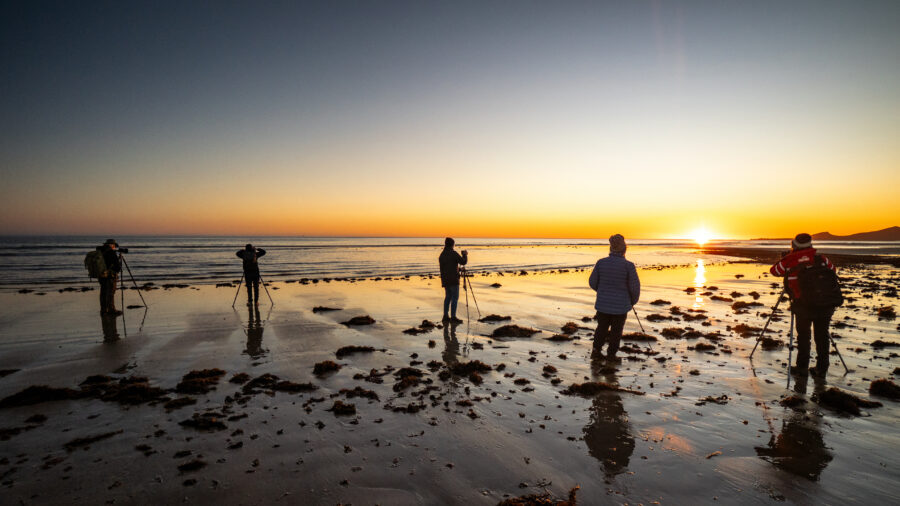Wildlife wonder Down Under
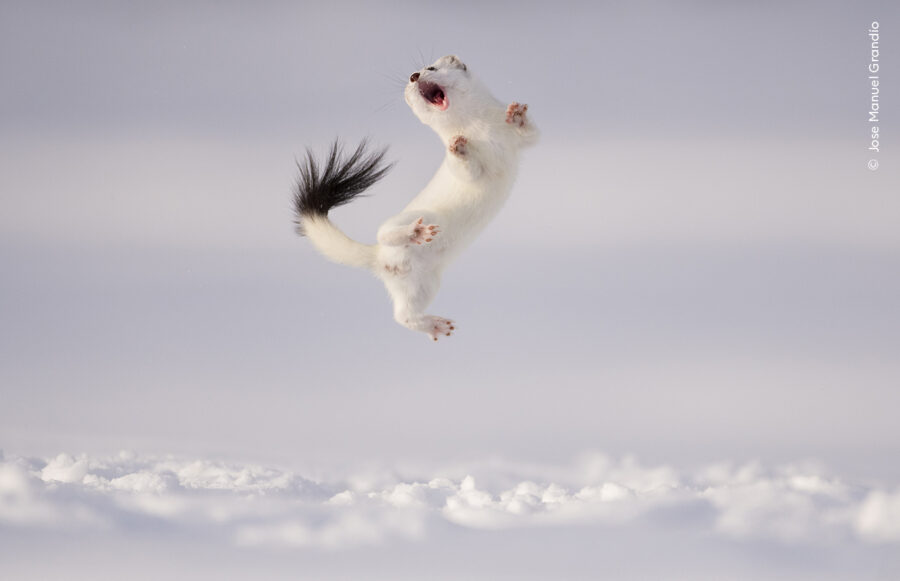
This article is brought to you by the Australian National Maritime Museum.
Now in its 60th year and widely considered ‘the Oscars of wildlife photography’, the world-renowned Wildlife Photographer of the Year competition captures images of fascinating animal behaviour, spectacular species and the incredible diversity of the natural world.
Canadian marine conservation photojournalist Shane Gross was awarded Wildlife Photographer of the Year 2024 for his image The Swarm of Life, a breathtaking photograph that shines an underwater light on the tadpoles of North America’s western toad.
Images in 18 categories showcase earth’s rich biodiversity and highlight the challenges wildlife face today. Three Australian photographers were either category or award winners.
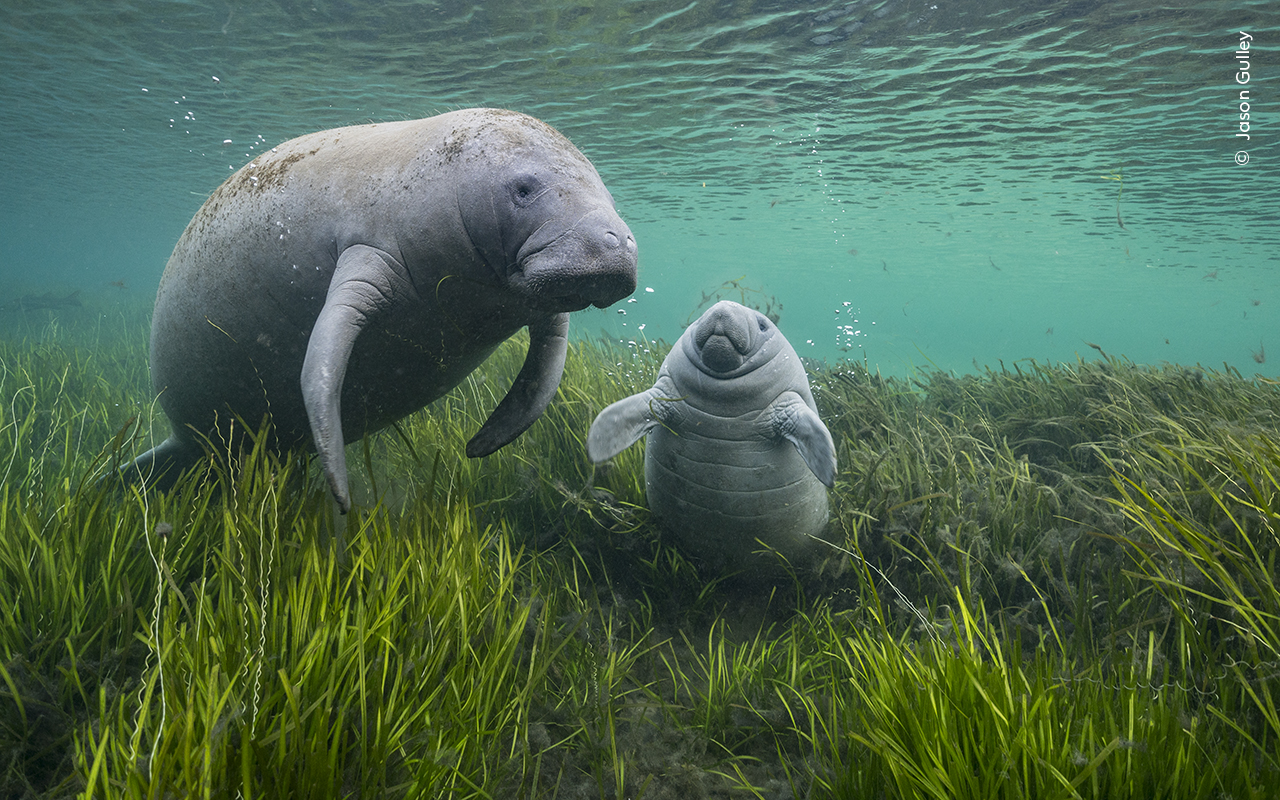
Matty Smith, based in Newcastle, New South Wales, won the Underwater category for Under the Waterline, an image of a curious leopard seal beneath the Antarctic ice. As co-founder of Wild Planet Expeditions, Matty was aboard a 60ft yacht running a photography tour in 2023 when he took his winning shot.
“We were in a place called Paradise Harbour on the Antarctic Peninsula and this leopard seal started following the boat,” he says.
“We took the opportunity to get into the water, and he was relaxed and friendly – but still intimidating at around 350kg and about 12ft long. The light was fading quickly, but he hung around and then came towards me, looked straight down the barrel and I took just a couple of frames. It was a split second in time.”
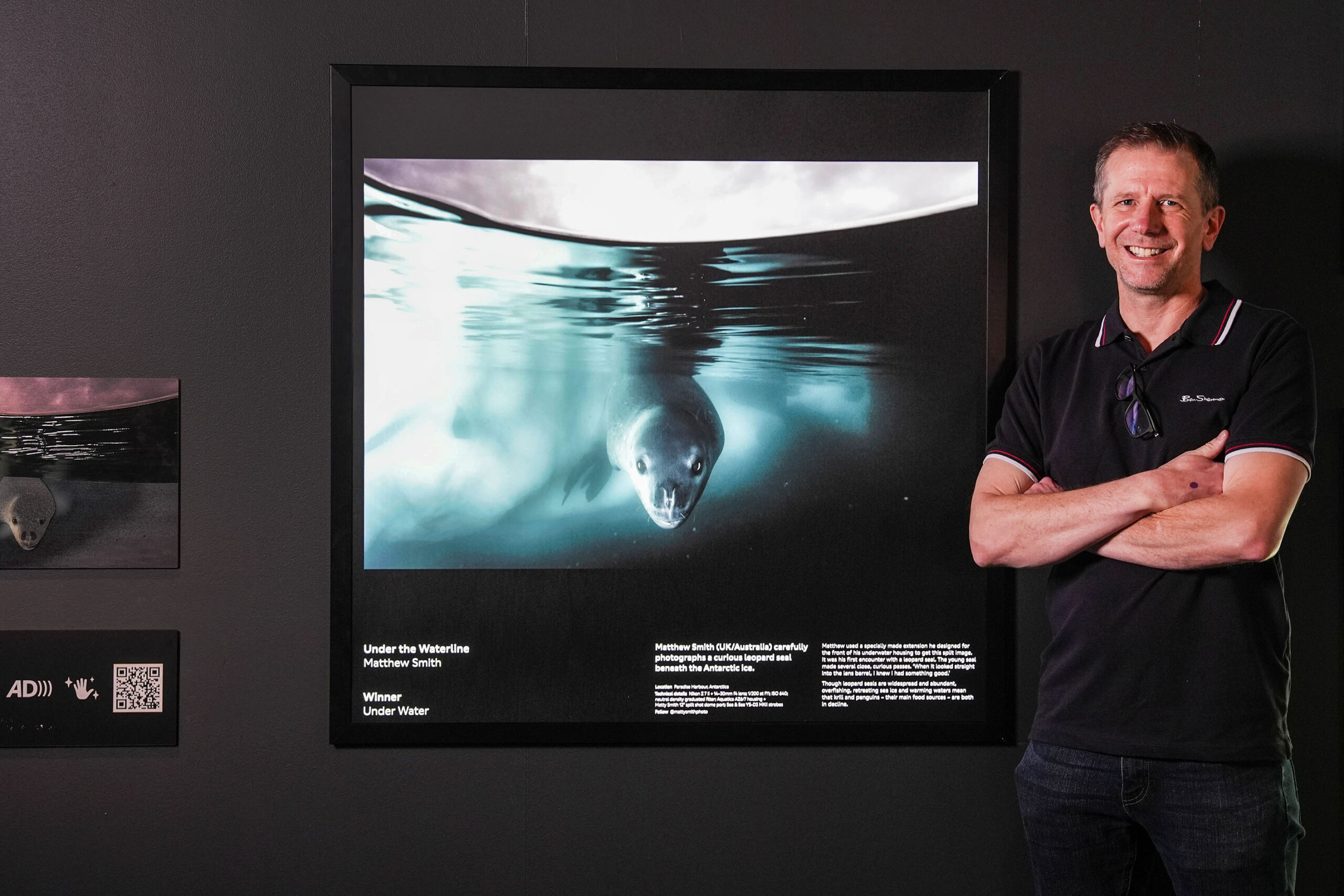
The underwater split shot, showing both above and below the water, is a signature style for which Matty has garnered many international awards. It was taken with a Nikon Z7 with a Nikon 14-30mm lens.
Justin Gilligan, who lives and works on Lord Howe Island, was the winner of Oceans: The Bigger Picture with A Diet of Deadly Plastic, creating a grim mosaic from the 403 pieces of plastic found inside the digestive tract of a dead flesh-footed shearwater.
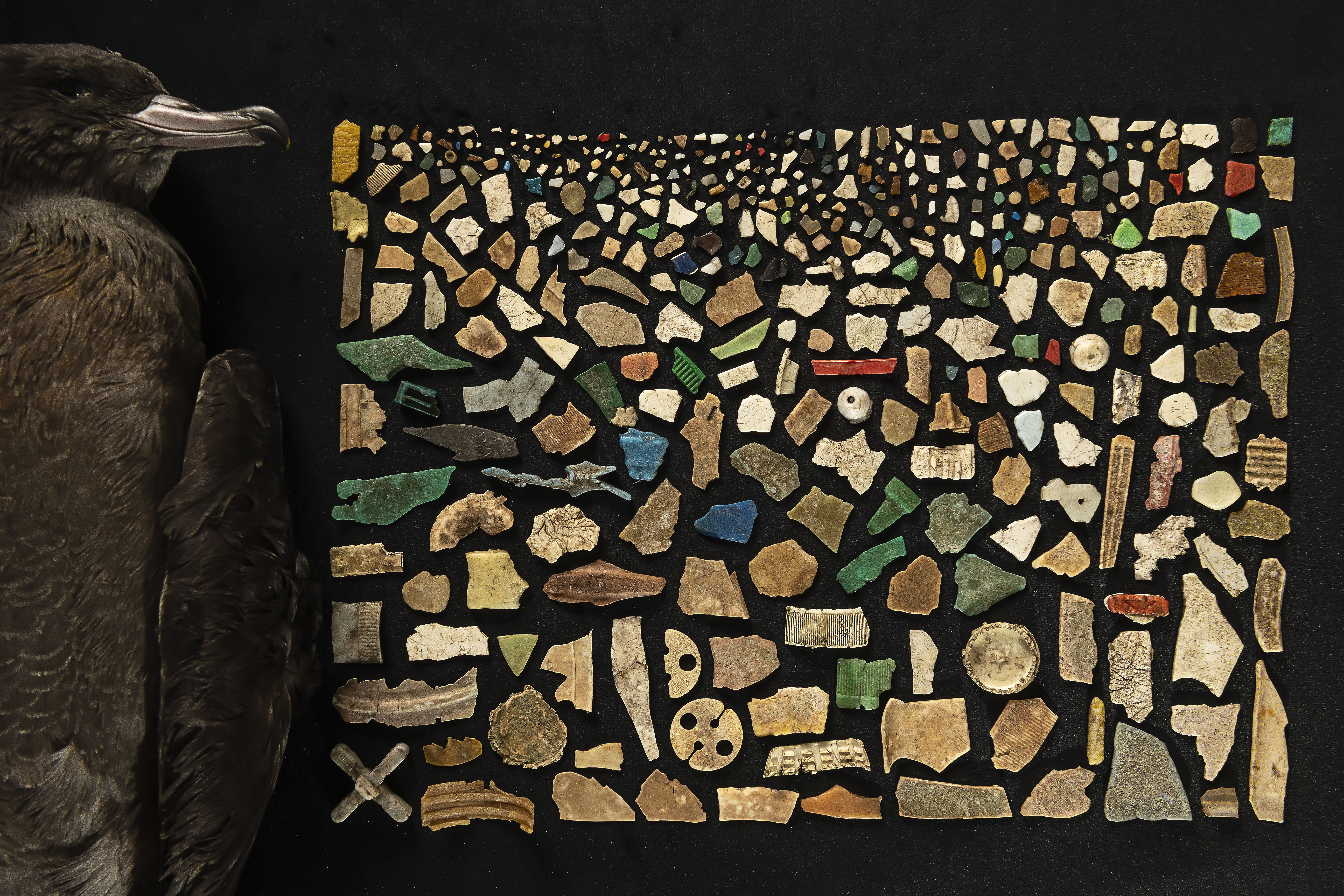
Aside from the categories, Brisbane-born Jannico Kelk won the Impact Award with his image Hope for the Ninu, showcasing a greater bilby (Ninu) in a fenced reserve.
The Young Wildlife Photographer of the Year 2024 title was awarded to Alexis Tinker-Tsavalas, from Germany, for his up-close image Life Under Dead Wood, depicting the fruiting bodies of slime mould and a tiny springtail.
Wildlife Photographer of the Year is developed and produced by the Natural History Museum, London. Running since 1965, today the competition receives entries from all over the world.
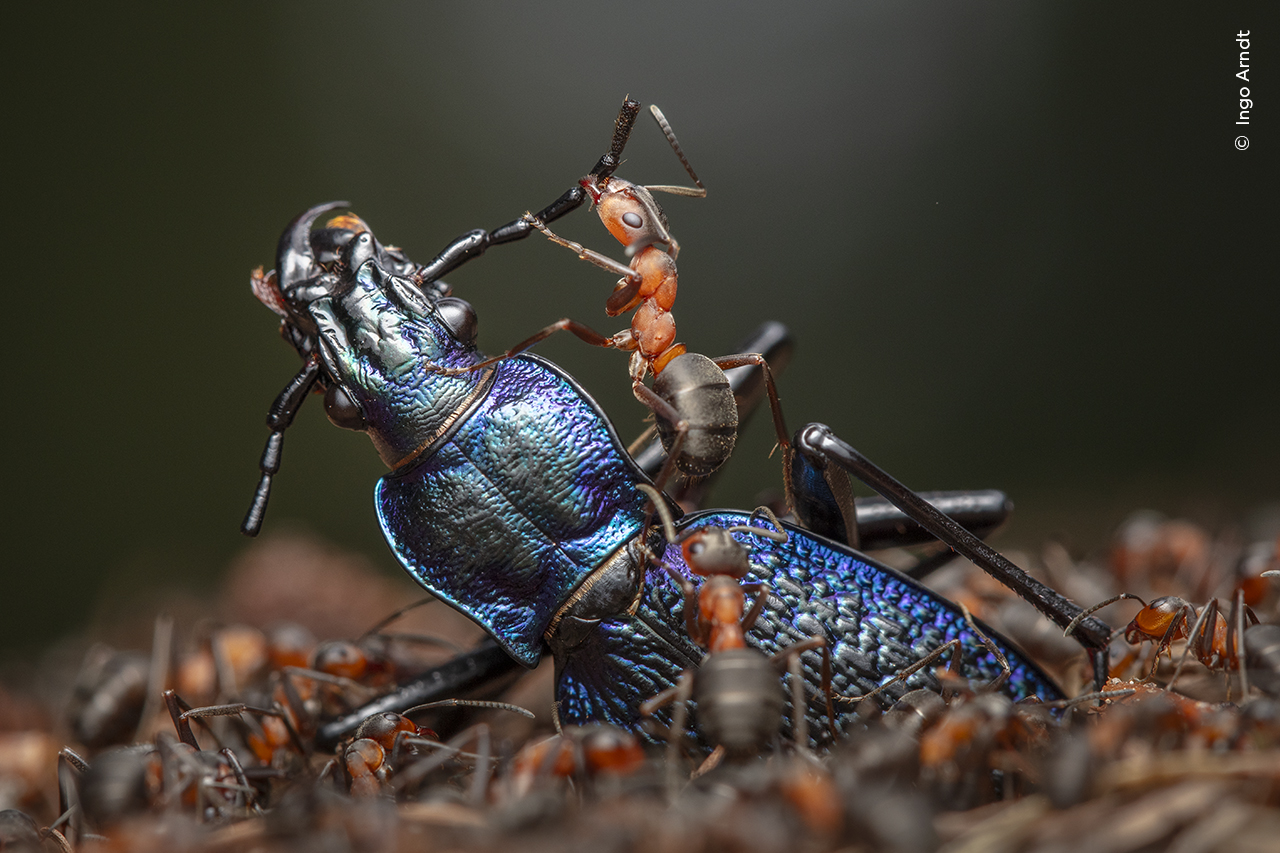
was Highly Commended in the competition.
This year’s competition attracted 59,228 entries from photographers of all ages and experience levels from 117 countries and territories. Entries are judged anonymously on creativity, originality, and technical excellence by an international panel of industry experts.
Ms Daryl Karp AM, museum CEO and director, says Wildlife Photographer of the Year is a perennial favourite with Australian audiences.
“These are powerful, beautiful and perfectly timed images that surprise, inspire and amaze,” she says.
“There’s no better space to lose and immerse yourself in this planet’s natural world.”
The exhibition runs until October 19 at the Australian National Maritime Museum.
This article is brought to you by the Australian National Maritime Museum.
